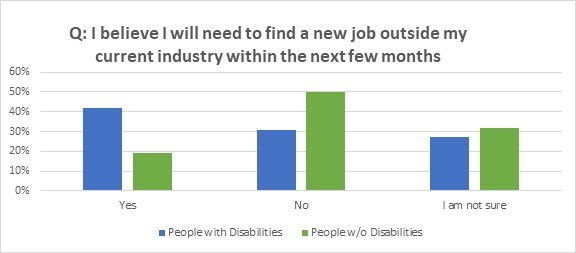Employees with disabilities suffer more economically amid the COVID-19 pandemic than those without a disability, according to consulting firm Global Disability Inclusion. Its recent survey of over 500 staff, revealed that 51% of employees with a disability have either lost their jobs, been laid off or furloughed, or believe they will lose their job in the next 90 days, compared to 28% of those without a disability. Around two-thirds of people with disabilities also expect to experience economic insecurity over the next 12 months.
“The survey data demonstrates people with disabilities, who are often already on the fringes of competitive employment, are some of the first groups impacted as companies shuffle their workforce to reduce hours, and lay off employees due to the economic shutdown,” stated Meg O’Connell, CEO & Founder of Global Disability Inclusion. “Companies are faced with unprecedented changes to their work environments and many are struggling to keep operations going. Unfortunately, this negatively impacts many employees with a disability.”
ECONOMIC IMPACT
As the chart below demonstrates, people with disabilities are two times more likely than those without disabilities to think they will need to find a new job outside of their current industry in the next few months.

Source: Global Disability Inclusion
“As COVID-19 shifts the way we work, it has also shifted the businesses and industries that will lead us out of this economic crisis. This presents new opportunities for both those with a disability and the companies looking for employees who can adapt to new environments,” added O’Connell. “As we continue to adjust to our new business environments and the world of work shifts to become more remote, it will be important for companies to understand the impact and the opportunity of continuing to leverage a workforce that is diverse and includes the largest diversity segment, individuals with disabilities.”
Click here for more information.







































